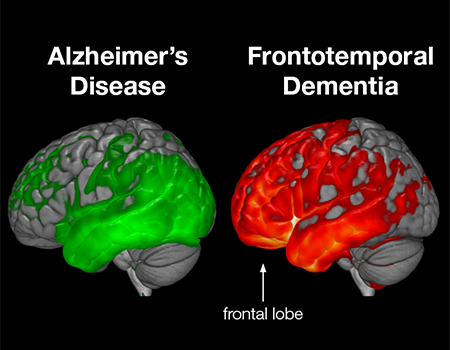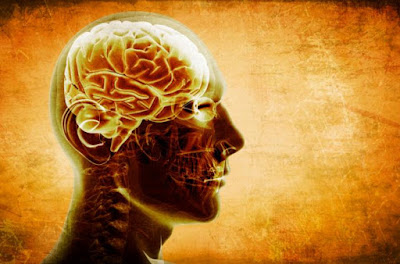 |
| Image thanks to ALC |
Goodmorning viewers, hope you are all feeling well rested and, ready for another day of Traveling Activist with your favorite host Zachery Ramos. Today we will be in Part Four of the Activist for Alzheimer’s series and, today is all about sharing with you all the stories of people who are going through this tragic disease. I must warn you all if you are weak of heart then make sure you have a box of tissues next to you for these stories can bring out tears.
Bridgett’s Story- Irish
I am 55 years old and have been married for 32 years. We have two wonderful grown daughters and a beautiful 4-year-old grandson. I grew up in an Irish Catholic family with seven brothers and sisters. My mother was an alcoholic. She was very abusive, and my dad did the best he could to protect us. She passed away when she was 55.
I started drinking and doing drugs at 11. I was severely addicted and took over 100 pills a day along with the drinking. I brought my husband and daughters into the same hell I grew up in; the only difference have I loved my girls so much I could not abuse them, so all the abuse was toward myself. I went to rehab at age 35, when my girls were 9 and 7. It has been 19 years in Alcoholics Anonymous, and it has been rough. As a family, we have worked together in counseling to try to mend the issues from my alcoholism and drug addiction. We are very close and love one another intensely.
I did suffer brain damage, but I also was blessed with a wonderful job as a family social worker in a very poor school district. In my late 40s, I started noticing some forgetfulness – like everyone my age – but it continued to get worse, and other things started to happen. I had done so well in my job, but then the forgetfulness turned to confusion, time loss and not recognizing people I had known for years. I started to have tremors and huge bouts of anger from nowhere.
I was officially diagnosed with Alzheimer’s in the fall of 2006. I had to retire from my job a few years prior because of my symptoms and other physical problems. I have been through the medications, and things are not good. My family is in pain once again because of my disease, and I can’t even describe how much I don’t want to be a burden to my loved ones. Some days, I don’t get out of bed, and others I fight like hell to get up and get out, even when I feel horrible. I see people I don’t recognize. My speech is terrible, which makes me self-conscious.
We have heard about new medications coming out, and I am so excited. I am going for my six-month check up at the Alzheimer clinic closest to us. My girls are in the prime of their lives. They both had full college athletic scholarships and have wonderful careers, but all they do is worry about me, as does my husband.
Out of 55 years of life, I have only lived 19. We have to keep giving for research. This is a horrible way to live, and I have experienced life on God’s terms. I pray every day for my family and myself that something will change.
Ted’s Story- Found on http://www.alz.org/
The first manifestation of something being amiss with my memory was in late 2004 when I began to have problems remembering some details relative to my job.
My position as a computer systems analyst in a major Chicago area hospital required that I support the patient document imaging system, the patient registration system and the materials management system, which also included finance and accounting. These systems were not linked and each had individual characteristics, which I had to account for in the diagnosis and correction of problems, as well as installation of upgrades.
Having noted this memory issue, I compensated by taking copious notes about problems and writing detailed procedures for system operation, as well as problem diagnosis and correction. This helped the memory issue, but slowed me down as I could not always remember steps that were easy for me to remember in earlier times, which required me to stop and look up information on my “cheat sheets.”
Some users noted that my verbal responses to their questions were not always immediate and that they saw me referring to notes to find some information. They did not bring this to my attention. My memory issues had been mentioned by some users to the director of information systems, who called me into the office of my supervisor, who served as a witness to the proceedings. Unfortunately for me, her response to the complaints was to terminate me immediately, and I was escorted out of the building.
I was very surprised, to say the least, and basically said nothing at this point, not that I had much time to do so as I was escorted out very quickly. When my wife, also a Lake Forest Hospital employee, later talked to the Director of Human Resources about my issues, she was told that my termination was due to performance issues and not any disease, as the issue did not arise after an official diagnosis was made. If I had almost any other physical impairment or disease, such as a stroke, heart attack or amputation, I would have been eligible to collect disability from the hospital.
Having noted these issues, my wife and I made contact with the Rush Alzheimer’s unit in Chicago, and I was evaluated there in February of 2005. The result of these tests indicated that I did have memory impairment, but they would need follow-up test in six months to confirm a diagnosis of Alzheimer’s. Thus, I have evaluated again the following August, and the tests showed a decline from the February results, which led to a diagnosis of Alzheimer’s.
For a time I worked as a greeter at Wal-Mart, where they were very understanding about the Alzheimer’s. But subsequent issues made it harder for me to perform this job as my memory was pretty erratic. I was now retired, whether I wanted to be or not.
I must say that Social Security was very understanding, and at the first appointment, I described my issues and was approved for Social Security Disability. If not for this, we would have been in severe financial trouble. I will be eternally grateful to Social Security for their understanding and fast assistance.
However, I was turned down by the VA which, as a veteran (Vietnam era), came as some surprise to me. Oh well, we are still pursuing this avenue. This does highlight a problem that there is no consistent approach to Alzheimer’s by the various entities with which we must interact.
Due to the income decline noted above, we had to sell our home and move to more modest housing. Also, my interaction with our grandchildren is different now as they know that I am different, but are not sure just what the problem is. I am also concerned about my higher level of frustration and memory lapses. I am no longer comfortable taking them on road trips to various parks as I did in the past for fear that I will have a memory lapse and forget them or somehow endanger their safety.
Now I am reluctant to go places alone, and my wife has retired early to be with me at all times. This is actually a benefit for me, as I treasure her company above all others, but it was another economic loss for us. Additionally, I have few new memories to speak of as recent events just do not stay in my mind on a consistent basis. As a result, I feel that I am robbed of any future because while I will live in it, I will be unlikely to remember it.
I do believe that our country can do anything if properly motivated as was the case in the space race and World War II for example. When we are fired up, nothing can withstand the onslaught of American vigor and know-how. We just need to focus our efforts to solve any issue.
Alzheimer’s is a sleeping giant and as the baby boomers age, the issue will impact society in a geometric progression due to the great increase in those suffering from this disease.
Finally, I could not write this without the help of my wife. Yes, I am educated and was always very successful in academic endeavors, but now, I can’t consistently retain short-term memories without someone to keep me on track with what I want to say.
My wife is now my memory, and I can write this only with her ability to remember parts of my life that I am getting fuzzy about. In some cases, I can forget what I was trying to say while typing the sentence, so I tell her what I was getting at, so she can help if it fades out as I type it.
Victoria’s Story- Living with Alzheimer's for 3 Now
I am 57 and was diagnosed in 2004 with early-onset Alzheimer's disease. I was a bank manager and was very active in my community and church.
One afternoon, I left work and did not know how to get home. This was the start of a "downhill no return" into the Alzheimer's world. I am now in my world, a world of confusion, fatigue, and most days, in severe pain.
I know there are days that I am more confused than others, and there are some days I am more agitated than others. I used to be this very independent, overachiever. And now, I am this very dependent underachiever, which causes me much frustration. Where things used to be very easy for me, all things now I find very complicated – even the easiest task.
My eyesight is unpredictable, so that leaves me with little reading time. But when I can read, I enjoy reading my Bible and spending time with God. I love it when my husband tells me it is time to go to church. There I find peace (even though sometimes it can be chaotic).
I now have a part-time caregiver, and she has been a lifesaver for me. She gets me out of the house, and I try to with my time with her help others. I go to a support group meeting near my home, which has been very helpful. I am hoping there will be a support group for early-onset Alzheimer's disease coming to my area very soon, and I am looking forward to it.
I have a husband of 38 years that is very supportive, even though I know I put lots of pressure on him. He tells me he can handle it, and I love him even more. We have a 5th wheel camper, and we love traveling when we can. He is still employed, but we travel to the mountains and to a local lake where we can fish for crappie, which we both love to do. We own a pontoon boat due to me and my disorientation; I can fish from it much better.
We love spending time with our grandchildren. We have three (two boys, one little girl and another due in September). We have two daughters who are a great support to us, but we try not to put too much pressure on them because they have their husbands, work, and children.
I have autonomic neuropathy and peripheral neuropathy, which gives me much leg and arm pain. This complicates things, but I am a fighter. I have much determination, so I keep on fighting and keep on going. God is good, and he will always remain on his throne. There is where I find my peace and draw my strength.
I never have what people call normal days, but each day is a day in its own and I thank God for every day. He gives me as someone else stated (which I can't remember who), "I am thankful for this day God has granted me on this side of the soil." Another one of my favorite's is, "This is the day that the Lord has made. Let us be glad and rejoice in it."
There are thousand’s more of these types of stories around the world each one worse through time. Some with happy endings of families being understanding and, loving through it all. While some are sadly unlucky and, are casted out to be left wondering the streets trying to figure out who they are or what happened to themselves. We have to love and, care for those dealing with this disease because, they need our help in fighting the battle to remember who they are. Today’s question for you all is how can we help those suffering from Dementia? That’s it today for Traveling Activist with your host Zachery Ramos and, before I go always remember if you can dream it you can achieve it as long as your heart is in it. Stay safe everyone and, enjoy the beautiful day.















